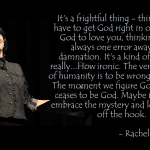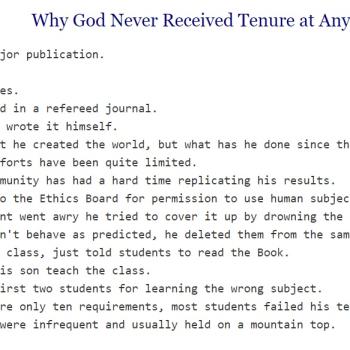When sharing a recent blog post on social media, I offered some thoughts on how academic study works at its most basic level. Here is what I wrote, with some minor improvements and alterations to the wording:
Reading some online discussions, you’d think that there is a need for people on those blogs and discussion boards, with no particular expertise in or professional connection with the study of history, to come up with their own methods for historical study. Not that they don’t talk about what historians and scholars past and present have done and do. But they talk about the methods as though they themselves actually use them regularly to investigate historical questions and so are poised to assess their value, and indeed better poised than professionals who do in fact use them, daily.
At other times, I get the distinct impression that some people outside of academic think that debates among academics about methods as well as specific conclusions show that academia is broken, that something is fundamentally wrong, when in fact this is the very reason it works so well. Every method and every conclusion is open to challenge or refinement, but likewise every alternative proposal is also subjected to close critical scrutiny.
That day’s post on my blog included some of things that I have come across over the past several months that either illustrate the vibrancy of online discussion when done well, or illustrate how it can go awry. As you’ll know from things I’ve written on the subject, I do think that there is room for serious academic work to take place and be facilitated by interaction in the online realm. But there the risk is that it will become entangled with efforts to reach a wider audience, which in turn can keep one bogged down in debates with people who really don’t seem to understand what academics do or how scholarly research proceeds – and worse still, seem to have no interest in becoming better informed about the topic!
Of related interest was John Warner’s piece on loving one’s work, which many academics do, me included (lest anything I wrote above persuade you otherwise!)













